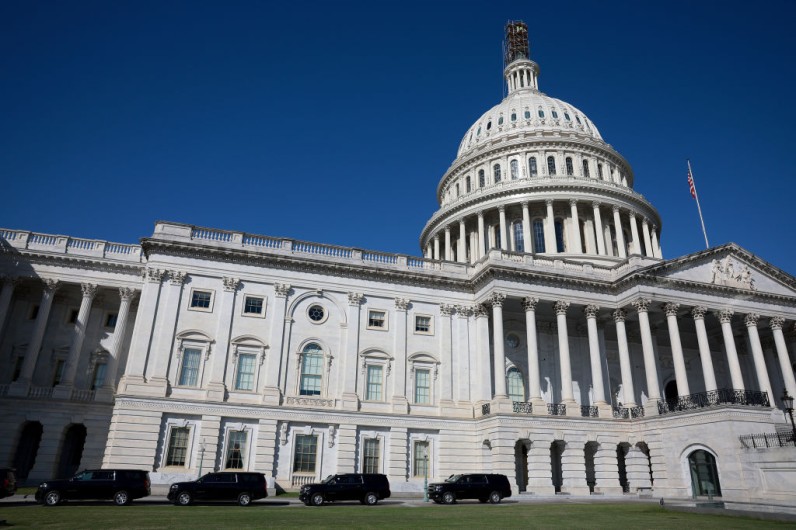Bipartisan negotiators in the US Congress have reached an agreement on spending levels in the 12 bills crucial in preventing a government shutdown in early March, Republican lawmakers announced on Monday.
According to Reuters, the deal follows an agreement early this month between Republican House Speaker Mike Johnson and Democratic Senate Majority Leader Chuck Schumer, who agreed on a $1.59 trillion discretionary spending level for the fiscal year that commenced on October 1.

US Congress Working to Avert a Government Shutdown
Legislators must pass these 12 bills to avert a government shutdown starting in early March. These bills would fund the government and avert a partial shutdown of federal agencies starting on March 1.
Republican Representative Dave Joyce, chair of the House Appropriations Subcommittee on Homeland Security, affirmed their commitment to finish the task while emphasizing its urgency.
"We're on it. We're going to continue to focus on that until we get them done," Joyce noted.
However, Republican Representative Mario Diaz-Balart, who chairs the House Appropriations Subcommittee on State, Foreign Operations, and Related Programs, highlighted the challenges the lawmakers face.
"We don't have a lot of time. And there's going to be a lot of really, really contentious issues," Diaz-Balart said.
READ NEXT : Stopgap Spending Bill to Avert Government Shutdown Passes Congress, Waits for Joe Biden's Signature
Stopgap Spending Bill Passes US Congress
Earlier this month, Congress passed a third stopgap funding bill to extend current spending levels and give lawmakers until March to pass the dozen spending bills to fund the government.
The temporary measure will run until March 1 for some federal agencies, whose funds were set to run out last January 19. It will also reportedly extend the remainder of government operations to March 8.
This development comes amid the US' rapidly escalating national debt, which is currently worth $34.4 trillion, fueling concerns due to the heavy interest payments now being borne by the Treasury Department.







Join the Conversation